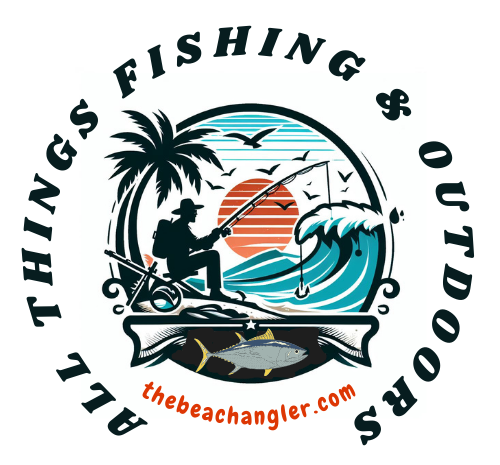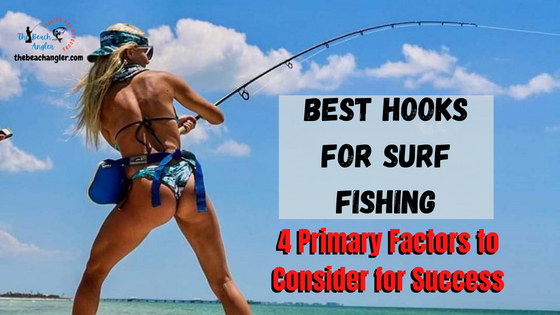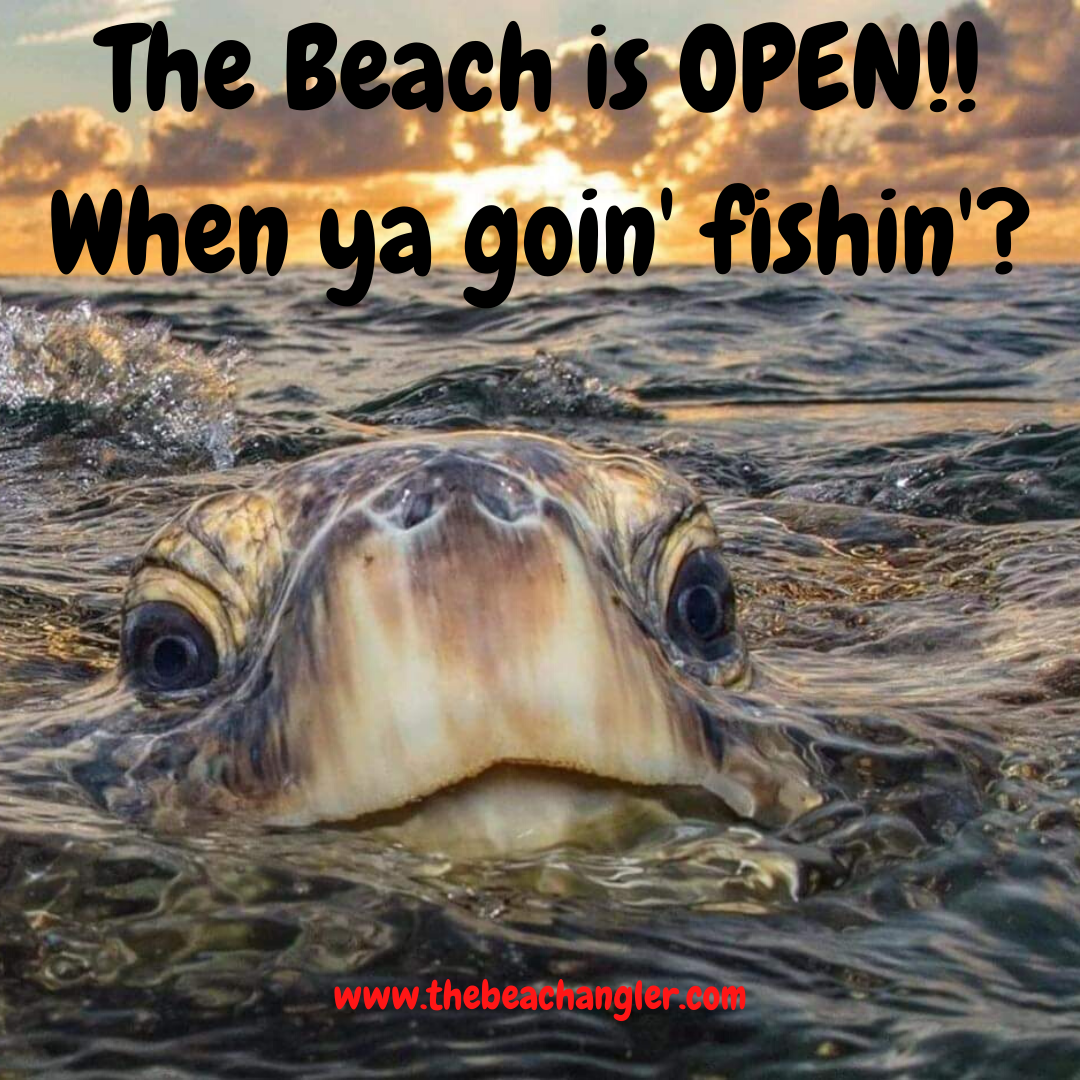One of the most often overlooked, and one of the most important, items of fishing tackle is your fishing hooks.
And, its no different when it comes to surf fishing. So, what are the best hooks for surf fishing, and how do you decide which hooks to use?
Most of the time we get caught up in choosing rods and reels, lines, lures, weights and rigs. So many choices, and it can get confusing.
But don’t forget the hooks. They, after all, are your first point of contact with the fish. If you don’t have the right hook, chances are you’ll lose some fish.
There are so many sizes, styles, and brands of hooks available with more hitting the market everyday it seems. Read along and we’ll try to cut through all the marketing clutter and help you zero in on the best hooks for surf fishing for you and your fishing situations.
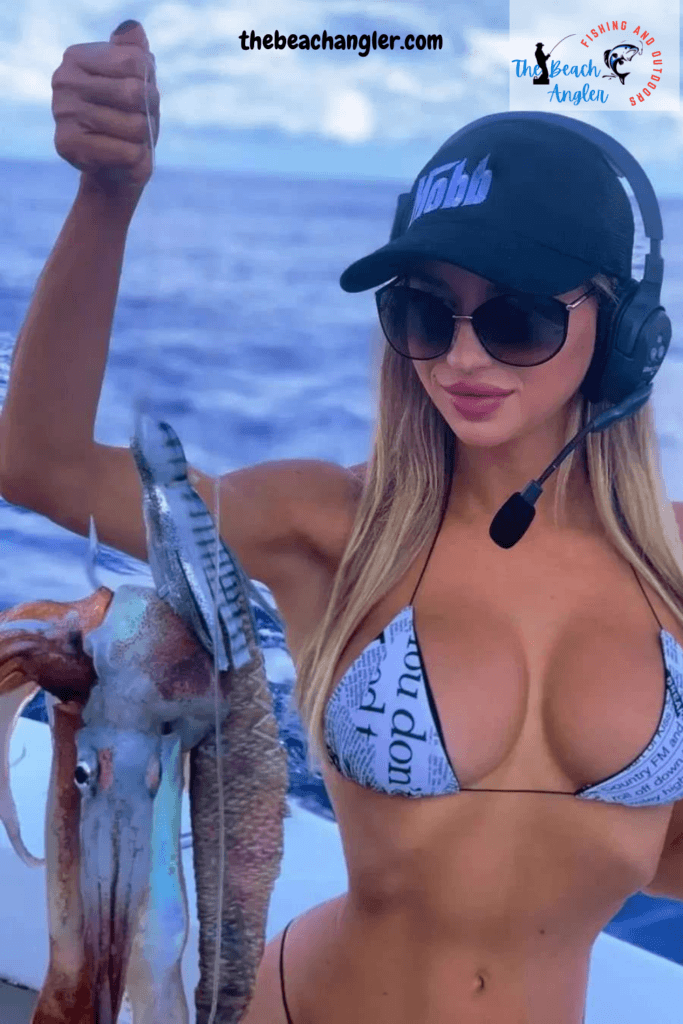
QUICK SUMMARY
Selecting the best hooks for surf fishing will come down to 4 main factors: 1. The type and size of fish will you be fishing for. 2. The method(s) you will use to fish for them. 3.) The style of hook. And 4.) The size of hook. You will also need to make sure the hooks you will be using are saltwater rated for corrosion resistance. You can use freshwater hooks in saltwater but they will quickly rust and become useless after exposure to saltwater. Hooks are one of the least expensive tackle items you will need for surf fishing I recommend you get a selection of inline circle, J, treble, and a few Kahle hooks for live bait.
| Circle Hooks | J Hooks | Treble Hooks | Kahle Hooks |
|---|---|---|---|
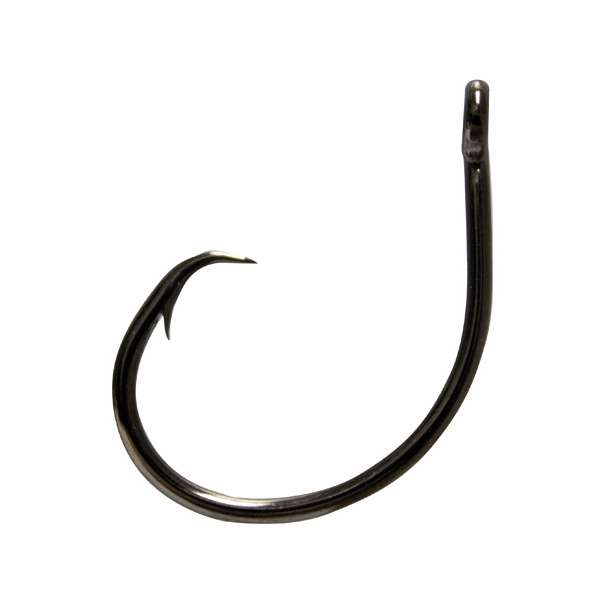 | 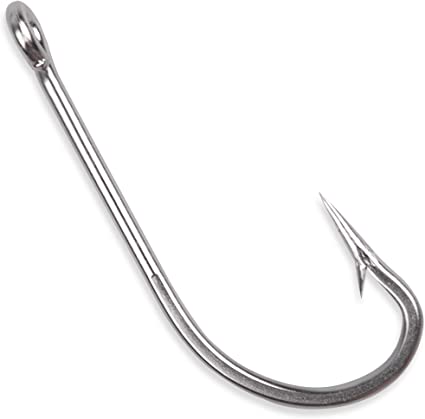 | 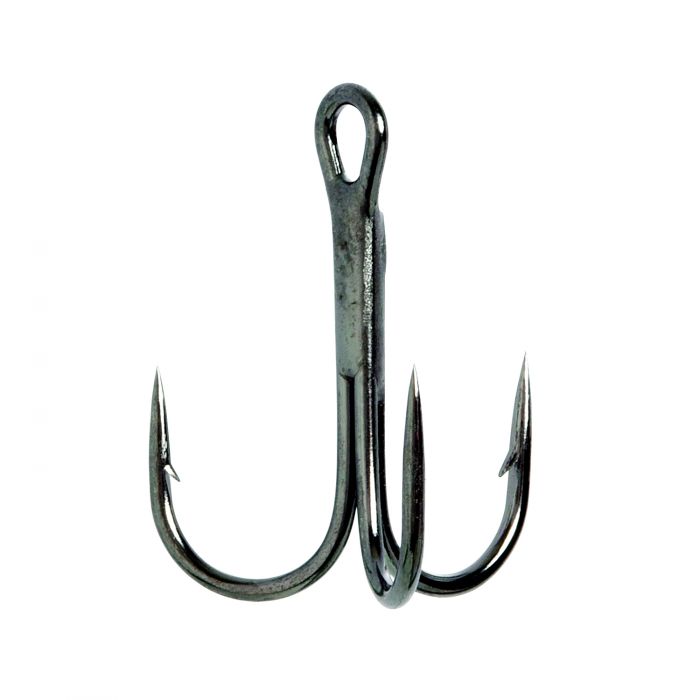 | 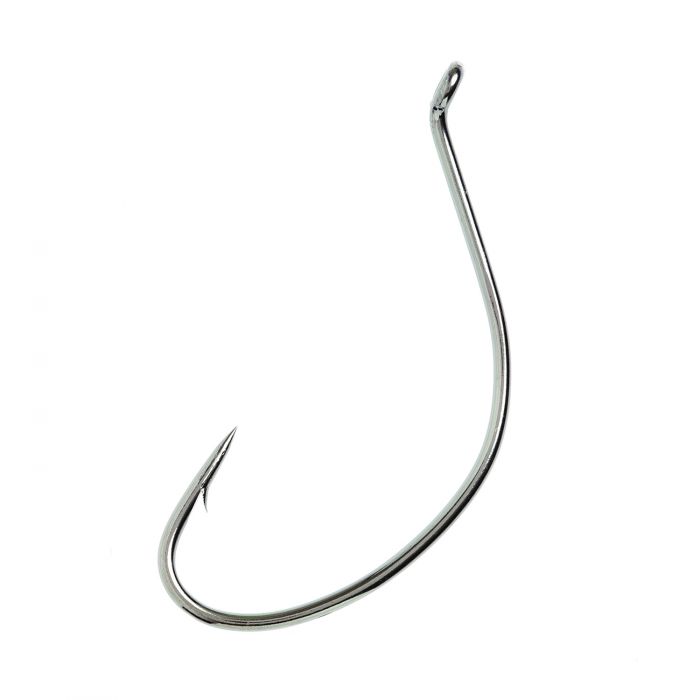 |
| Safer for Fish | Versatile | Live Bait | Live Bait Fish |
| Fish hooks itself | Most Available | Artificial Lures | Allow Bait to Swim |
| SEE MORE | SEE MORE | SEE MORE | SEE MORE |
Surf Fishing and Saltwater vs Freshwater Tackle
In case, you didn’t know already, saltwater is very corrosive and hard on your fishing gear especially your hooks. Saltwater fishing tackle is made with corrosion resistant materials where freshwater tackle is not. Yes you can use freshwater gear and hooks in saltwater but you risk serious damage.
Man has been fishing for centuries, the earliest fishing hooks were made of wood, bone, horn, shells, stone, bronze, and iron. With modern technology today, we have hooks made from high carbon steel, steel alloys, stainless steel and even various platings and coatings.
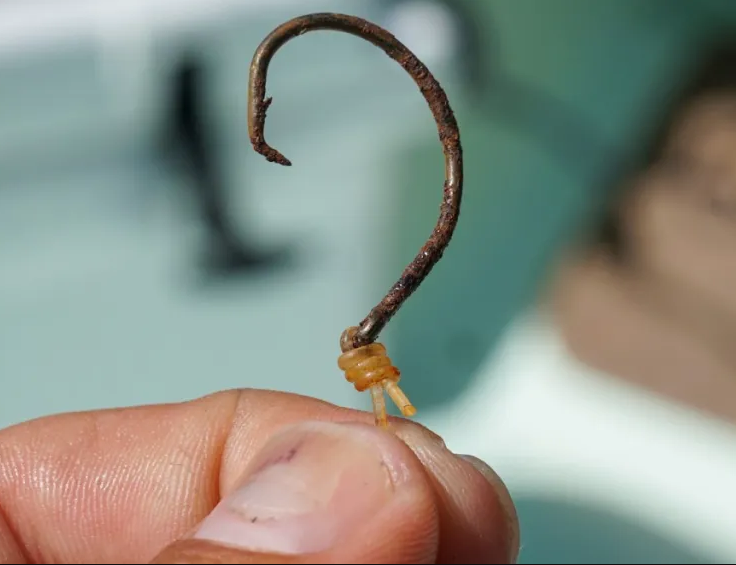
Some of these provide a level of saltwater resistance others, not so much. All metal hooks will, eventually, corrode in saltwater.
High carbon steel hooks commonly used in freshwater applications have no saltwater resistance and will rust literally within hours after their very first exposure to the saltwater environment.
The best saltwater and surf fishing hooks will be made of stainless steel, vanadium steel or other stainless steel alloy. Many hook makers are now even adding protective coatings to add to the corrosion resistance of their hooks. But all metal hooks, if left in saltwater long enough, will eventually corrode away.
This actually is a good thing for those cases where a fish breaks your line and swims off with the hook still in his mouth. Over time that hook will corrode or rust away and fall out. Now, this can take anywhere from a few months to a few years depending on what the hook is made of and or coated with.
Types of Fishing Hooks for Surf Fishing
There seems to be as many types, sizes, styles and brands of fishing hooks as there are fish in the sea. So, what are the best types of hooks for surf fishing? The answer will depend on what you’re fishing for and what bait you will be using.
For surf fishing, you will be fishing either with natural baits ( live and dead) or artificial lures. Now most artificial lures come with hooks already attached. The exception would be your soft plastics where you will need to consider saltwater resistant hooks.
Surf Fishing Hooks for Natural Baits
Natural baits for surf fishing will be live, dead, or cut baits of various types. For years the go to hook for fishing with bait was the standard J hook. They are the most common and versatile hooks, and have been around for decades. J hooks are available in a wide variety of sizes and with corrosion resistant options as well.
Everything from small live baits to whole stingrays for big sharks, and everything in between, you can find a J hook that is designed for it.
And, the J hook has served fisherman well for decades. But now, the latest trend in surf fishing has been the use of circle hooks.
Circle hooks, like the name says, are more circular with the point of the hook curving in towards the hook shank. Are circle hooks better? Well, they do have some advantages.
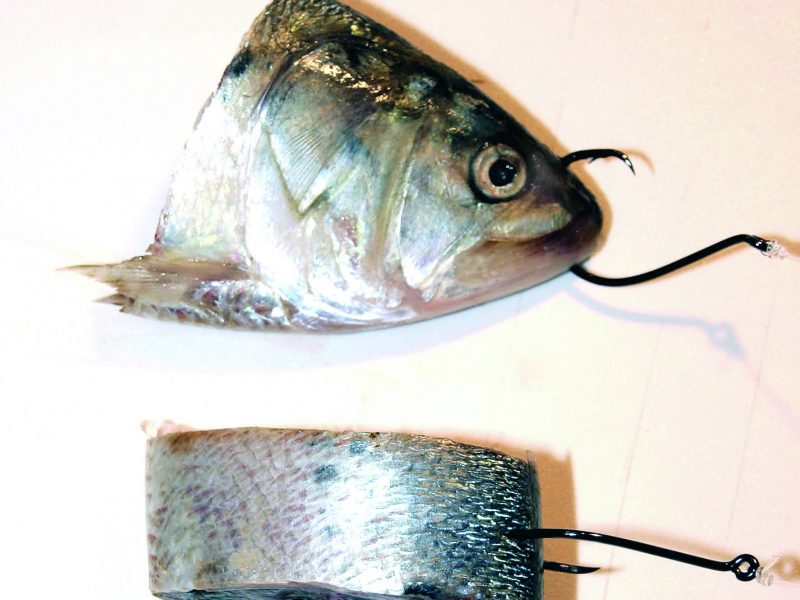
1.) They set themselves when a fish strikes so there is no need to “set the hook” and the closed gap design makes it harder for the fish to “throw” the hook which results in more hook ups and fewer lost fish.
2.) Even when a fish swallows the hook, the curved point of the circle hook is designed to, in most occasions, prevent gut hooking the fish and the hook most often ends up in the corner of the fishers mouth. So, they are safer for the fish and allow for a higher survival rate for catch and release.
These advantages make circle hooks a great choice for surf fishing and, like J hooks, they too come in a large selection of sizes and corrosion resistance. They can be a bit more difficult to hook into your bait than J hooks because of the curved point and shape, but overall they make a better choice for surf fishing with live or dead natural baits
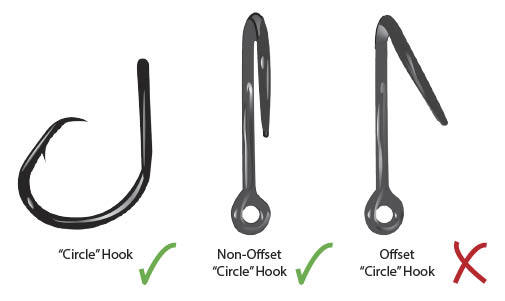
There are two types of circle hooks, inline and offset. The difference is that the point of the hook is “inline” with the hooks shank, or “offset” to one side of the hooks shank. The offset circle hook has the same hook set and holding power of the inline circle hook but the offset point allows it to hook the fish in other areas than just the corner of the mouth.
This means you could still end up with a gut hooked fish like with a J hook and that is not good for fish survivability when catching and releasing. Some areas have banned the offset circle hook for this reason so check you local regulations. When in doubt, go with the inline circle hook. Research has proven that if a fish is handled carefully, and not gut hooked, it has a high probability of surviving the encounter and living to fight another day.
Circle hooks will work for live, dead or cut baits but for live baits you may want to consider either treble hooks or wide gap kahle hooks. Smaller treble hooks work great for fishing live shrimp in the surf, you can hook the shrimp under the horn of its head and still have two other hooks exposed to the fish. They are also light enough not to hinder the shrimps natural movements.
Kahle hooks are a good choice when fishing with live perch, mullet, croaker and other baitfish. The wide gap of the kahle hook gives plenty of room to hook a large live bait and for the fish to swallow the live bait and still get the business end of the hook in its mouth. They are generally lighter wire material so they do less damage to your bait when you hook them up, and light enough that you bait can still swim and not get dragged to the bottom by a heavy hook.
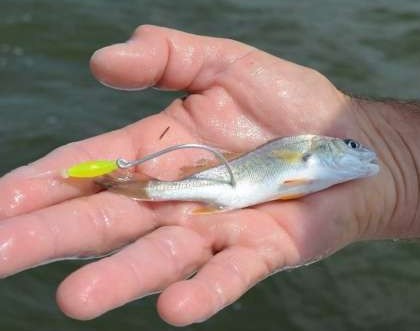
Surf Fishing Hooks for Soft Plastics
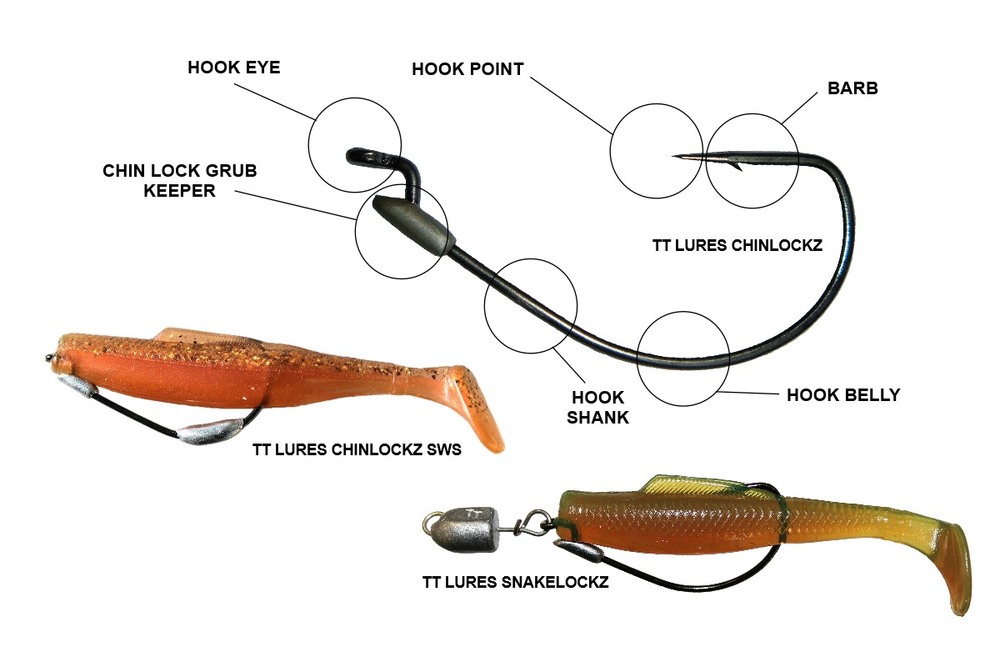
There are a few different styles of hooks for surf fishing with artificial lures. Most artificial lures like crank baits and jigs, come with hooks already attached. Mainly weighted J hooks in the case of jigs, and treble hooks in the case of crank baits, spoons and topwater plugs.
But for some of the soft plastic lures available, you can use specialized hooks to rig them weedless allowing you to fish areas that you couldn’t with a standard crank bait, spoon or jig. Hooks like the offset worm hook, weighted offset hook and screw lock hooks.
Again, it depends on your unique fishing environment, but they can be very useful to have in you tackle. These are great for those special situations where you need a weedless rig to fish, but for most surf fishing a standard jig head or J hook will work fine.
Fishing Hook Sizes for Surf Fishing
Once you’ve picked a type and style of hook for surf fishing, you will then need to decide on sizes of hooks. Much like types of hooks, there is a wide range of hook sizes for everything from perch to marlin. Hook sizes are given in numbers with the larger number being the smaller hook #32 up to #1 being larger. Then they switch it up and go to the 1/0 ( one aught) up to 27/0 where the larger number is the larger hook. Go figure :).
Hook size is important to consider because if it’s too big, the fish can’t get it in its mouth and if too small, a fish could swallow it and or straighten it during the fight and pull free resulting in a lost fish. You want to choose a hook that’s large enough to hold your bait, strong enough to land the fish, but not too big for the fish to get in its mouth.
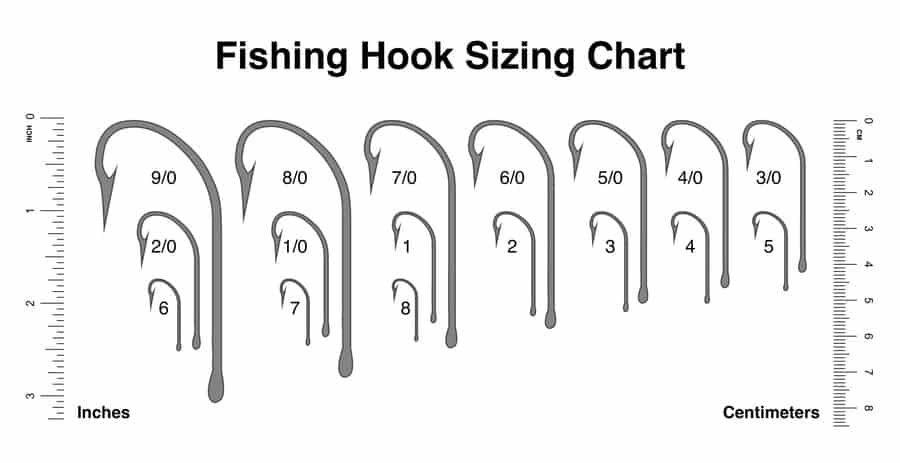
Surf fishing hook size, will again, depend on what your fishing for and what your fishing with. For most surf fishing with natural baits, a 2/0 circle hook is great for surf perch, croaker, whiting, pompano and other similar sized fish. For bull redfish, black drum and other larger species, a 5/0 to 7/0 circle hook will perform better.
You can use similar sized J hooks if you prefer, and for live baits you may want to use treble hooks or kahle hooks. For large sharks from the surf, you will need much larger and stronger hooks. An inline circle hook in the 14/0 to 24/0 size for big bull sharks, Hammerheads and Tiger sharks will give you a better chance of getting them to the beach.
What About a Fish Hooks Color?
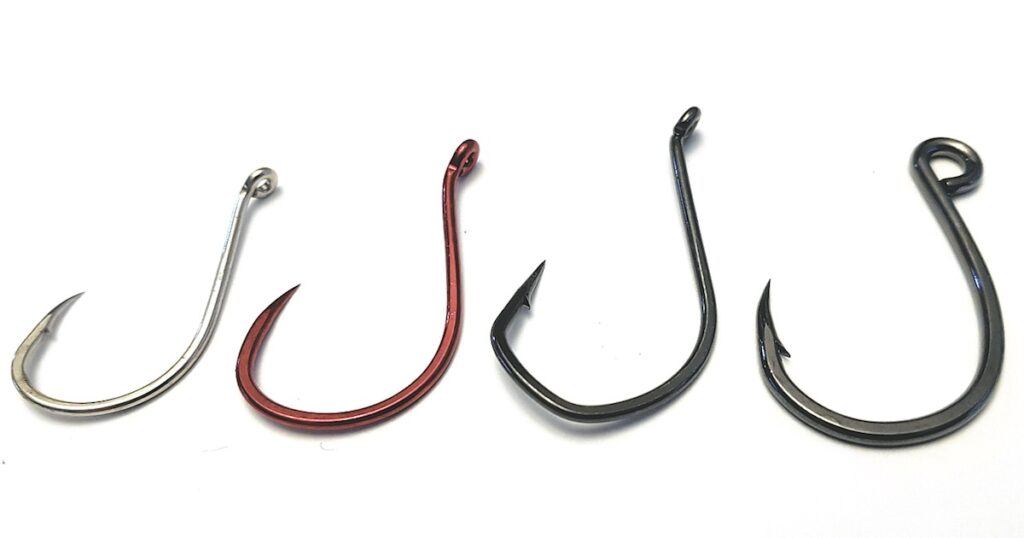
Most fishhooks are naturally metallic because they are made of high carbon steel or alloys of stainless steel and other metals. You can find hooks with various coatings that help with corrosion resistance from black to red to nickle plated and even “camo” colored hooks for fish that may be hook shy.
Does hook color make a difference? I’ve tried any number of colors and I haven’t noticed any major difference. If you think it helps, by all means go for it. Type, size and corrosion resistance will be much more important than hook color. Some of those pretty colors get scratched off after a couple of fish anyway.
What Will You be Fishing for?
Pretty straight forward right? If you’re fishing for surf perch or croaker you will need a much smaller hook than if you’re fishing for big tiger sharks. For bigger fish, you will need bigger, stronger hooks. You can big fish on smaller hooks, but you risk losing the fish and damaging your hooks.
There is a wide selection of hooks sizes for everything from the smallest pan fish to the largest bill fish and predators that roam the sea. Choose the hook size appropriate for your target species. Remember, it has to fit in their mouth if you’re going to have any chance of hooking them.
J hooks have been around forever and the work great, but inline circle hooks will set themselves, are hard for the fish to “throw” and are the least damaging to the fish itself in case, you need to release it.
What will You be Fishing with?
Will you be fishing with live bait, dead baits, or artificial lures like soft plastics? Each style of fishing will utilize a different type of hook for best performance.
Natural baits a J hook or inline circle hook will be your best choices. If fishing with live bait, you may want to consider treble or kahle hooks but usually you can find a circle or J hook that will work fine.
If you are fishing with soft plastics and need to rig weedless then you will need to take a look at offset worm hooks, weighted offset hooks and or screw lock hooks.
If you don’t need to rig your soft plastics weedless, then a jig head set up will be a better choice.
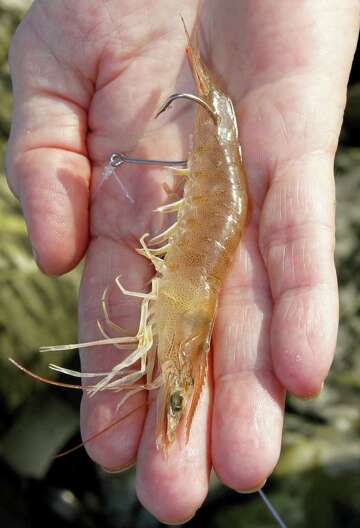
Who Makes the Best Hooks for Surf Fishing
There are a lot of hook manufactures and which one makes the best fishing hooks for surf fishing can be a toss up, or at the very least, a personal preference. But there are some hook makers that stand out above the rest and have been proven on the water, so to speak.
The following are some of what I consider to be the 5 best hook makers. If I left some out, just hit me up in the comment section below and I’ll take a look. The important thing is hooks from any of these companies on this list will perform well and help you catch fish.
Eagle Claw Hooks. Eagle Claw hooks are some of the best on the market. They’re strong, sharp, durable, and they come in a wide range of sizes for both freshwater and saltwater fishing they’re available everywhere and they’ve been around since 1925. They are also the only hooks made in the USA.
Mustad Fish Hooks – Mustad is another company that has been in the tackle business forever being founded in Norway in 1832. They have a worldwide presence and appeal by producing high quality products that simply work. For surf fishing they have developed hooks coated with Mustad’s new T-Steel non-reflective, low visibility finish with the ultimate saltwater corrosion resistance available on the market.
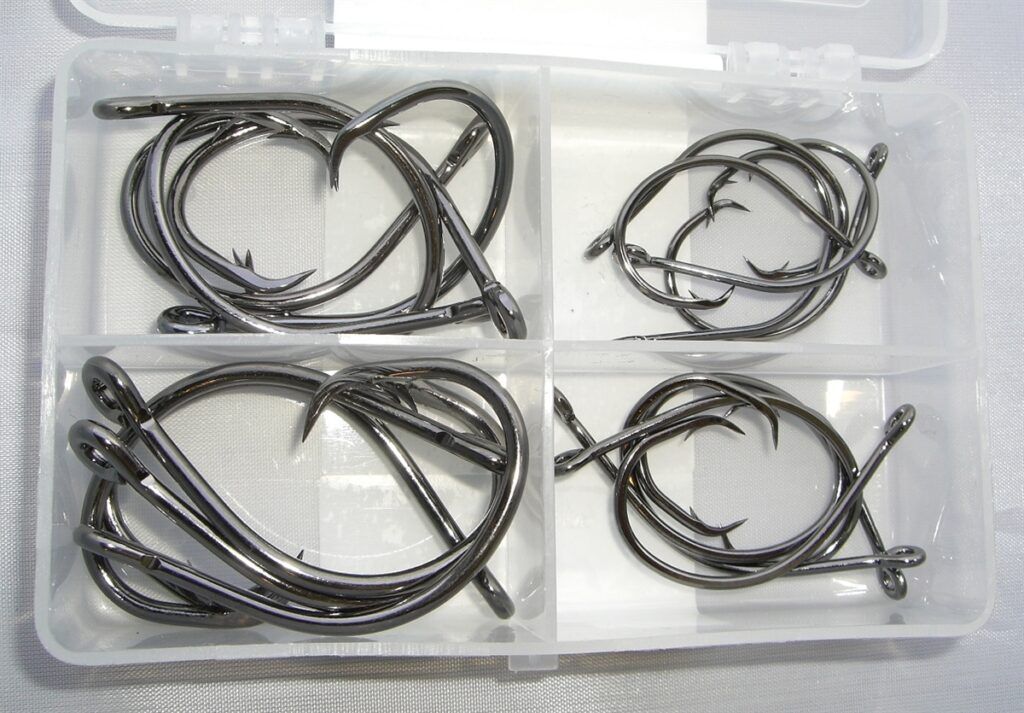
VMC Fish Hooks. VMC has been making fishhooks since 1910 so they know a thing or two about what works and what doesn’t when it comes to fishing hooks.
For saltwater and surf fishing hooks, they developed the Permasteel® anti-corrosion coating that has been shown to prevent corrosion in saltwater for over 1000 hours of exposure.
Gamakatsu Fish Hooks – Founded in Japan in 1955 Gamakatsu is another worldwide brand that produces high quality hooks for freshwater, saltwater, inshore, surf and offshore applications.
Owner Fish Hooks. Owner is a Japanese hook maker that was Founded in 1974. They currently make 1121 different hooks and hold 29 separate patents. They also make some of the strongest hooks on the market due to their proprietary steel alloy formulations.
You can find great hooks for surf fishing, or any fishing for that matter, from any of these hook makers. Choose what you like, what works best for you, your fishing situation, and your budget. Click the button below and check them out online.
Best Hooks for Surf Fishing
What are the best hooks for Surf Fishing?
Ultimately the best hooks for surf fishing will depend mostly on you and your unique fishing style and situation. Focus on corrosion resistance for sure. Then consider what you will be fishing for and how you will be fishing for them.
Bait versus artificials, live bait versus dead bait or cut baits.In general, a good selection of inline circle hooks will be your best option for most natural bait fishing situations. As an alternative, a good variety of J hooks will always work.
You can get very specific for each fish species and situation, but then you will end up with a tackle box full of hooks, many of which you will seldom if ever use.
So don’t make it too complicated. Inline Circle hooks are best for catch and release situations and in some situations are mandated by law.
Check the regulations, visit some fishing forums, ask you local bait and tackle shops and try some out. Find what works best for you and then you can expand your selection and inventory.
Frequently Asked Questions on Surf Fishing Hooks:
What are surf fishing hooks?
Surf fishing hooks are specially designed hooks used for fishing in ocean surf conditions. They are designed to withstand the waves and currents while providing secure hooksets for catching fish.
What types of surf fishing hooks are available?
There are various types of surf fishing hooks available, including J-hooks, circle hooks, treble hooks, and bait holder hooks. Each type serves a different purpose and can be used for specific fishing techniques or target species.

What size surf fishing hook should I use?
The size of the surf fishing hook you should use depends on several factors, such as the target species, bait size, and fishing conditions. As a general guideline, larger hooks are suitable for larger fish, while smaller hooks are better for smaller fish or when using smaller baits.
How do I choose the right surf fishing hook for the target species?
To choose the right surf fishing hook for the target species, consider the fish’s mouth size and feeding habits. For example, if you’re targeting larger fish with a wide mouth, you may opt for a larger J-hook or circle hook. Researching the specific fish species and their preferences can also help in selecting the appropriate hook.
What is the difference between J-hooks and circle hooks?
J-hooks have a traditional “J” shape and are commonly used for surf fishing. They provide a higher hookup rate but may result in more deep hooksets. Circle hooks, on the other hand, have a more circular shape and are designed to hook the fish in the corner of its mouth, reducing the chances of deep hooking. Circle hooks are often recommended for catch-and-release fishing.
Should I use barbed or barbless surf fishing hooks?
The choice between barbed and barbless surf fishing hooks depends on personal preference and local fishing regulations. Barbless hooks are easier to remove from the fish, potentially causing less harm during catch-and-release. However, barbed hooks can provide a more secure hookset. Make sure to check the fishing regulations in your area as some places may require the use of barbless hooks.
How do I properly bait a surf fishing hook?
To properly bait a surf fishing hook, thread the bait onto the hook in a way that securely covers the hook point. This can be done by threading the bait once or multiple times, depending on its size and shape. Make sure the hook is hidden within the bait to increase your chances of a successful hookup.
How should I care for and maintain my surf fishing hooks?
It’s important to rinse your surf fishing hooks with freshwater after each use to remove any saltwater or debris. Dry them thoroughly and store them in a tackle box or container to prevent rusting. Inspect the hooks regularly for any signs of damage or corrosion, and replace them if necessary.
Remember, it’s always a good idea to consult with local anglers or fishing experts who are familiar with the specific surf fishing conditions and target species in your area.
Grab Some Hooks and Head to the Beach
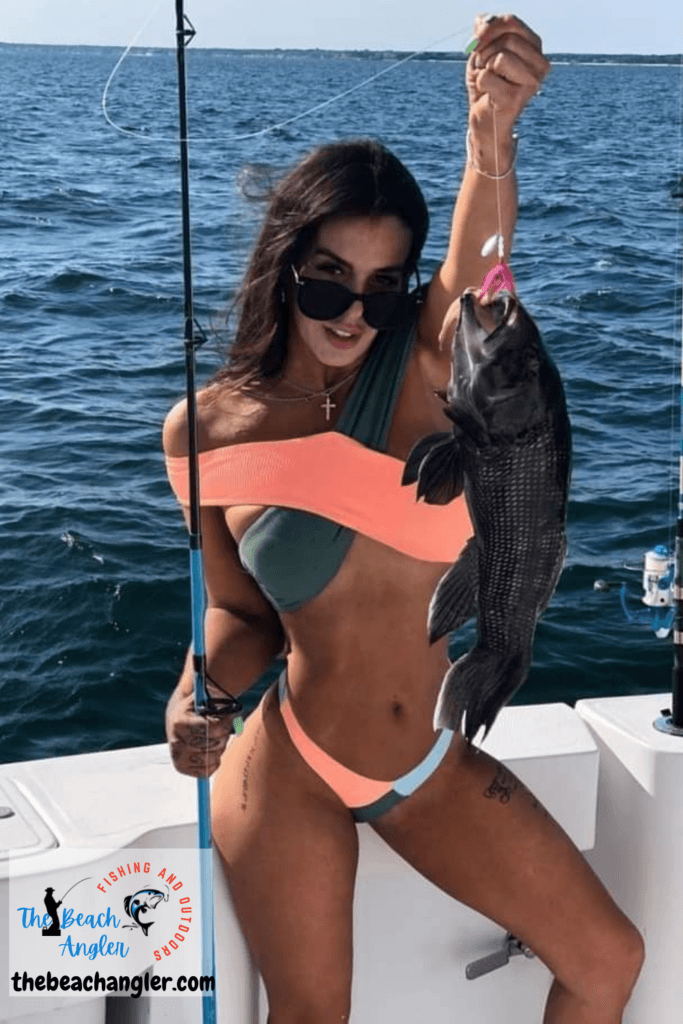
I hope this helps you cut through some of the clutter and find the best hooks for surf fishing where ever you surf fish.
The important thing in all this is: Go Fishing! There are a number of high quality, saltwater rated hooks available. Try a couple of different brands, sizes and styles.
Start with what fish you are targeting and how you will be fishing for them. Then you can narrow your choices down even further by size and hook style.
Fortunately hooks are one of the least expensive items in your tackle box. And, you will more than likely need a few different options for different fishing situations, bait types and target species.
As always, stay safe, enjoy the journey and please try to leave it cleaner than you found it. If you have any comments, questions, ideas or suggestions please leave them in the comment section below and I’ll get back to you asap. You can follow us on Facebook: Rex The Beach Angler, Instagram: thebeachangler7, Twitter: @AnglerBeach, and YouTube: Man Art Creations.
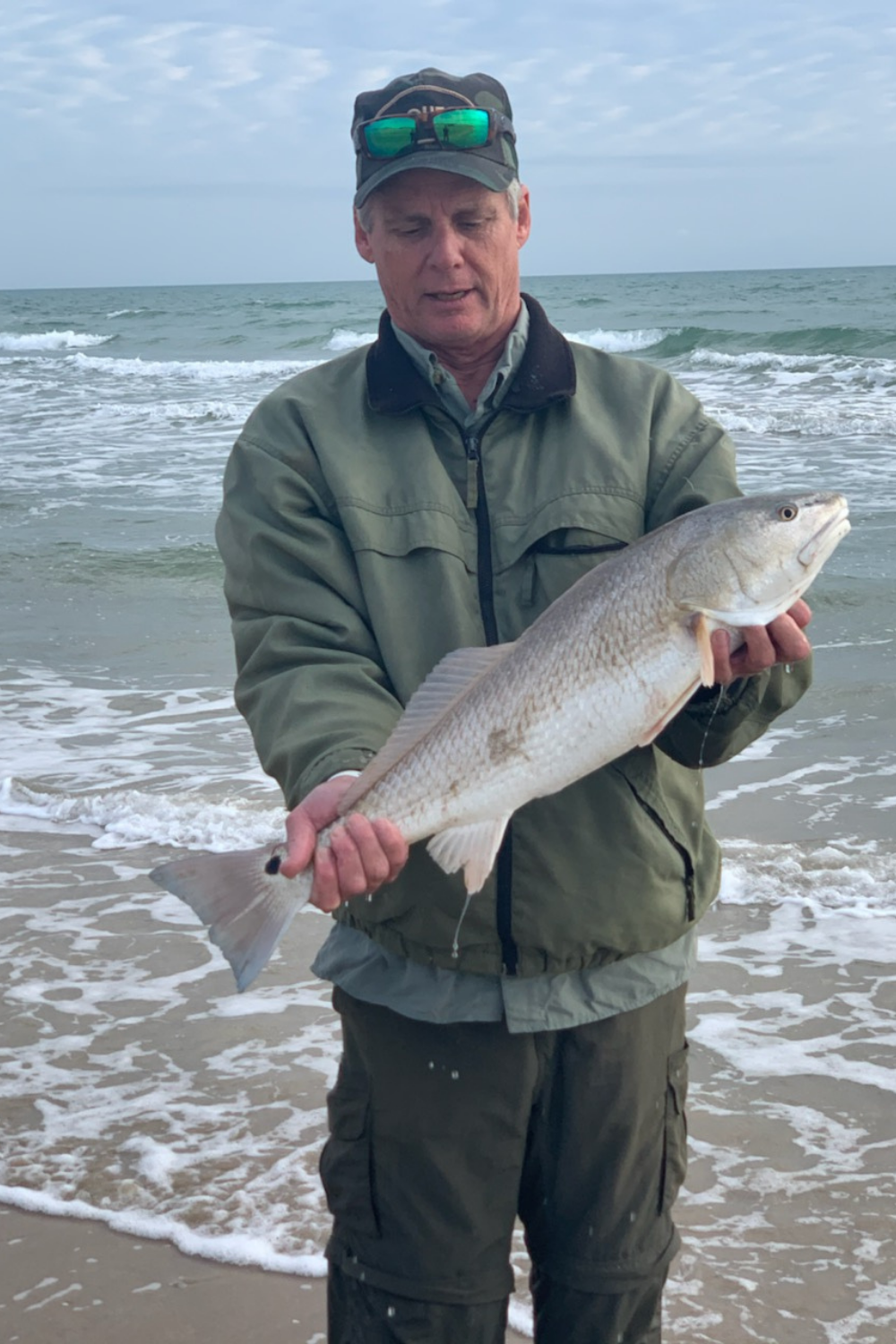
A life long surf fisherman with 50+ years of experience, I am also an avid hunter and outdoorsman. I will be sharing my passion for the outdoors with you so be prepared for hunting, fishing, camping, hiking and more. Along with gear reviews and the latest trends and innovations in the outdoor industry.
